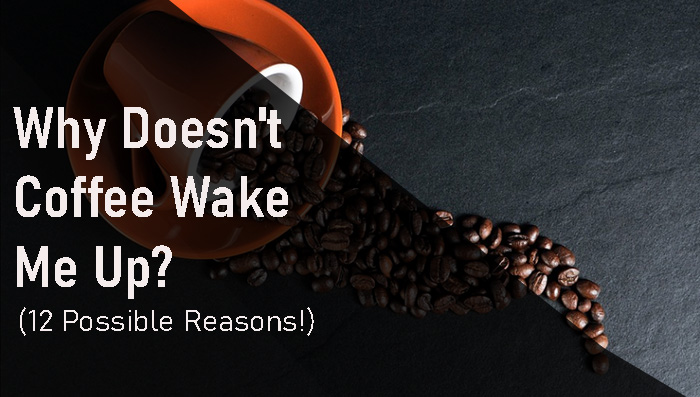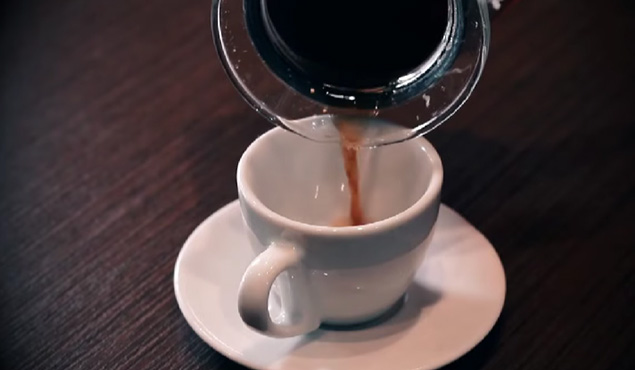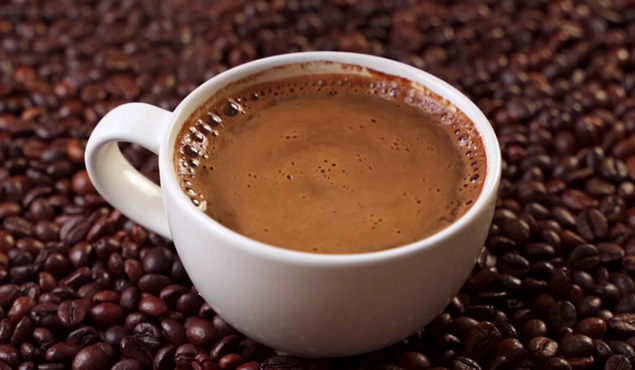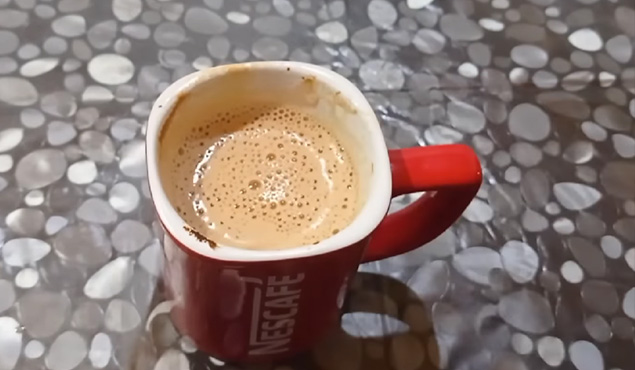Why Doesn’t Coffee Wake Me Up? (12 Possible Reasons!)

Ah, coffee – the liquid gold that we all swore by it to get our engines revving, and keeps us grinding away at work. But what if your morning brew no longer has that magical “wake-up” effect?
Well, there could be other reasons for it like the sleep debt, some medical condition, or it can be because you developed caffeine tolerance.
So, if you want to unravel the mystery of why your fav brew is failing to deliver its promise and leaves you feeling like a sluggish sloth, then delve into my 12 possible reasons.
The Science Behind Caffeine’s Effects
Coffee is uncertain_ you never know how your brain will react to its caffeine content. For some people, caffeine boosts their energy and for some people, it feels like they just took a sleeping pill.
If coffee makes you feel more like hibernating than dominating, don’t worry – there are ways to combat it.
Buckle up, coffee lovers, because if caffeine is doing absolutely nothing for you, there are some serious culprits to consider. We’ve already explored your concern i.e., Why doesn’t coffee wake me up?
1. Caffeine Tolerance
Coffee is like that friend who always wakes you up in the morning with their lively banter. But just like that friend, too much coffee can make you immune to its charms.
The secret to coffee’s magic lies in its caffeine content, which blocks adenosine receptors and increases dopamine levels, leaving you alert and happy. This effect is known as caffeine blocks.
However, when you constantly overload coffee, your body builds up a tolerance, causing caffeine to lose its mojo.
Noted: Caffeine tolerance can develop in as little as three to five days as per some researchers.
A scientific study compared those who had consumed caffeine with those who had taken a placebo and then exposed both groups to caffeine. The study showed that those who had been consuming caffeine already experienced less pronounced effects of caffeine, as opposed to those who had taken a placebo.
2. High sugar content
Adding sugar to your coffee is like putting a turbo booster in your car, except that booster runs out of juice as quickly as it came. Sure, it adds some flavor, but that sugar rush can lead to a devastating sugar crash, making you feel more drained.
This is because sugar can cause a rapid spike in blood sugar levels, followed by a quick drop, leaving you feeling tired and drained.
Plus, sugar metabolizes faster than caffeine, meaning it may even cancel out coffee’s natural energizing effects.

3. Quick caffeine metabolizer
The effects of coffee largely depend on your genetic makeup. The way caffeine is metabolized in the body is influenced by certain enzymes, which can vary from person to person.
Factors such as weight, smoking habits, and medication use can also impact caffeine’s half-life in the body. So, while some people may be fast metabolizers and not feel the full effects of caffeine, others may be slower metabolizers and experience more pronounced effects.
The half-life of caffeine could be anywhere between a mere 1.5 hours to a whopping 9.5 hours! That’s right, a single cup of coffee could be working its way through your system for nearly half a day.
4. Dehydration
Don’t blame caffeine for your dehydration, it’s innocent! Some studies suggest that regular caffeine consumers don’t experience the diuretic effects commonly associated with caffeine.
But, hold on a second…
If you’re substituting water with coffee, then we might have a problem here. Dehydration can make you feel tired and drowsy, even if you’re chugging coffee like it’s water.
Remember: Keep drinking actual water to keep your energy levels up!
5. Genetics
It’s not you, it’s your genes!
Your DNA plays a big role in how your body responds to caffeine. If your adenosine receptors are more slippery, caffeine will have a tough time latching on and preventing drowsiness.
And the enzymes in your liver, determine how long caffeine can party in your system and how quickly it gets broken down.
There are even two variants of the CYP1A2 enzyme, which can either make you a fast or slow caffeine metabolizer. So blame your genes if you don’t feel the buzz or if caffeine gives you anxiety or even withdrawal symptoms.
And don’t forget, as you age, your caffeine response can change too!

6. Adrenal fatigue
Your morning coffee may not be giving you the call you need if you suffer from adrenal fatigue. This condition can result from long-term stress, causing the adrenal glands to function poorly and produce less cortisol.
As a result, the body relies more on caffeine to produce energy, leading to a cycle of dependence.
So, instead of a caffeine boost, you may need to address the underlying issue of stress and seek other ways to support your energy levels, like getting more rest or practicing relaxation techniques.
7. Medication interaction
You might think coffee is invincible, but certain medications can be the kryptonite to its superpowers.
They can slow down your caffeine metabolism, making it last longer in your system, and leaving you with more jitters and headaches than actual energy.
These meds include antibiotics, antifungals, antidepressants, and even high blood pressure medication. And, if you thought alcohol was just another coffee companion, think again.
It also slows down your caffeine metabolism, which means your caffeine buzz might not be as buzzy as you thought.
8. Sleep debt
If you’re feeling constantly groggy, don’t blame your coffee. It might be your sleep debt that’s keeping you down. Your body keeps a tally of how much sleep you owe it, based on your genetically-determined sleep needs.
So, even if you’re chugging coffee like a champ, you’ll still feel like a zombie if you’re deep in debt. In fact, studies show that after just a few nights of poor sleep, caffeine stops working its magic. And if you keep reaching for more, you’ll only make things worse.
So, get some rest, because adenosine is a relentless chemical that will keep building up until you do.

9. Poor sleep quality
It’s important to understand that coffee is not a magical solution to make up for a lack of sleep. If you have been consistently sleep-deprived for several days, your body will eventually demand rest, and no amount of caffeine will be able to override that.
It is crucial to prioritize adequate sleep instead of relying on coffee as a substitute. In such cases, it is recommended to prioritize rest and aim for a good night’s sleep to ensure overall health and well-being.
10. Anemia
Coffee might not be the knight in shining armor you expect it to be if you’re feeling sluggish due to anemia. Your body needs a healthy dose of oxygen-carrying red blood cells to stay alert, and anemia robs your body of that vital component.
So, before you blame your coffee for being a dud, get your blood checked.
11. Depression or chronic stress
Coffee may not be as effective at waking you up if you’re struggling with depression or chronic stress. These conditions can affect the levels of neurotransmitters in your brain, making it harder for caffeine to do its job of blocking sleep-inducing adenosine.
12. Not drinking coffee at the right time or Inconsistent caffeine intake
Coffee can be a great pick-me-up, but it’s all about timing. If you’re not drinking it at the right time, it may not be as effective.
Inconsistent caffeine intake can also throw off your body’s response to the stimulant, leaving you feeling sluggish.
What should I do if coffee isn’t waking me up anymore?
Try these alternatives to fix the issue:
Address sleep debt
- Keeping sleep debt below 5 hours is crucial for optimal energy levels.
- Take well-timed naps to pay back sleep debt but avoid napping too close to bedtime
- Try going to bed a little earlier for a few nights to catch up on sleep
- If going to bed earlier isn’t possible, wake up a little later for a maximum of one hour
- Maintain good sleep hygiene to fall asleep faster and wake up less frequently at night.
Consider underlying medical conditions
If your daily cup of coffee is no longer doing the trick, it might be time to investigate underlying medical conditions such as anemia, thyroid problems, or sleep apnea. Consult with a healthcare professional to identify and address any potential health issues.
Adjust caffeine consumption habits
If you’ve been relying on caffeine to keep you awake and it’s no longer doing the trick, it’s time to adjust your caffeine consumption habits. One option is to change the timing of your caffeine intake, as consuming caffeine too late in the day can disrupt your sleep and leave you feeling groggy the next day. It’s important to be mindful of your caffeine consumption and how it affects your sleep and energy levels.
Chewing Gum
Chewing gum can help increase blood flow to your brain and activate your nervous system, helping you stay alert and awake.
Other caffeine resources i.e. Tea or Yerba mate
If coffee isn’t cutting it, try switching to energy-boosting teas like matcha. Matcha contains a specific amino acid that can help keep you alert and focused.

The Takeaway
Now that you know why caffeine may not be effective for you, there’s no need to stress. Enjoy the taste of your coffee and try alternative ways to stay active and alert. Engage in physical activity, chew gum, stay hydrated, and prioritize sleep to keep your body and mind stimulated.
By taking care of your overall health, you can improve your energy levels and stay productive throughout the day!
FAQS
Why doesn’t coffee give me energy?
If coffee isn’t working for you, it could be due to caffeine tolerance, dehydration, or underlying medical issues. Stay hydrated, maintain good health, and try other energy-boosting activities to stay alert.
What does it mean when coffee puts you to sleep?
If you find yourself feeling sleepy after drinking coffee, it could be due to the accumulation of Adenosine in your brain, which can counteract the stimulating effects of caffeine and lead to drowsiness.
